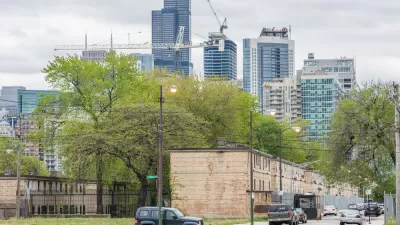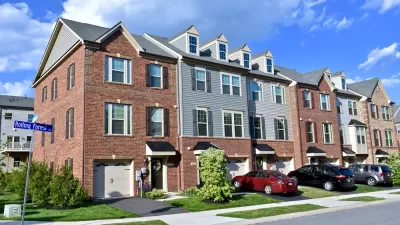This month, changes to Chicago's Affordable Requirements Ordinance (ARO) will go into effect, raising the in-lieu fees developers must pay to opt out of building affordable units downtown.

Following a March City Council vote, Chicago will begin enforcing an updated version of its Affordable Requirements Ordinance (ARO) in October. The existing ARO, enacted in 2003, "requires developers of private residential projects to make 10 percent of their units affordable, or pay $100,000 to a city-run affordable housing trust fund for every unit they do not build."
"The new ARO raises that fee to $175,000 and $125,000 for downtown developers and those who build in higher-income census tracts, respectively, while slashing that price to $50,000 per unit in areas home to mostly low- and moderate-income residents." This will, it is hoped, shift new affordable units to areas where cheap housing is hard to come by.
The rule change has generated some push-back from developers, who cite already-thin margins. However, "affordable units also offer steady income for private developers, who can count on the subsidized rents of their tenants even during dips in the rental market."
Related Companies Midwest president Curt R. Bailey expressed a willingness to work within the new rules: "It's going to make the bar a little higher to build in downtown, but at the end of the day it should produce a better city for us if we have affordable housing downtown."
FULL STORY: Feature> Windy and Affordable

Maui's Vacation Rental Debate Turns Ugly
Verbal attacks, misinformation campaigns and fistfights plague a high-stakes debate to convert thousands of vacation rentals into long-term housing.

Planetizen Federal Action Tracker
A weekly monitor of how Trump’s orders and actions are impacting planners and planning in America.

In Urban Planning, AI Prompting Could be the New Design Thinking
Creativity has long been key to great urban design. What if we see AI as our new creative partner?

King County Supportive Housing Program Offers Hope for Unhoused Residents
The county is taking a ‘Housing First’ approach that prioritizes getting people into housing, then offering wraparound supportive services.

Researchers Use AI to Get Clearer Picture of US Housing
Analysts are using artificial intelligence to supercharge their research by allowing them to comb through data faster. Though these AI tools can be error prone, they save time and housing researchers are optimistic about the future.

Making Shared Micromobility More Inclusive
Cities and shared mobility system operators can do more to include people with disabilities in planning and operations, per a new report.
Urban Design for Planners 1: Software Tools
This six-course series explores essential urban design concepts using open source software and equips planners with the tools they need to participate fully in the urban design process.
Planning for Universal Design
Learn the tools for implementing Universal Design in planning regulations.
planning NEXT
Appalachian Highlands Housing Partners
Mpact (founded as Rail~Volution)
City of Camden Redevelopment Agency
City of Astoria
City of Portland
City of Laramie





























